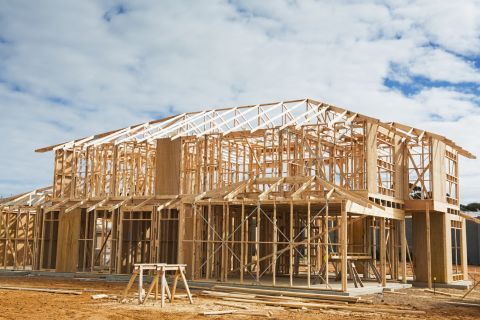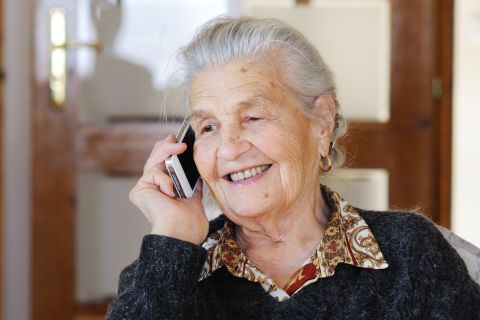Your thoughts on ageism revealed
The realities of ageism you told us about in this year’s National Seniors Social Survey.

This week, to coincide with Ageism Awareness Day, National Seniors is launching two new research reports about ageism.
Both are based on findings from the 13th National Seniors Social Survey which around 5,500 older Australians responded to in February 2024. A big thank you to all of you who participated!
The survey included a module about ageism, approaching the topic from multiple angles.
Enough material came from it to fill four research reports, and we’ll publish the other two later this year.
What is ageism?
9 October was Ageism Awareness Day this year.
For those unfamiliar with the term, ageism is similar to racism or sexism, but age based.
It is usually defined as prejudice, stereotyping, or discrimination that is based on a person’s age, whether they are young, old, or otherwise.
In our 2024 National Seniors Social Survey, a few respondents wrote comments disparaging the term “ageism”, feeling it was simply a new way of describing things.
However, the term was invented in 1968 by the ground-breaking US geriatrician Robert N. Butler. Its use has steadily increased ever since.
The EveryAGE Counts campaign founded Ageism Awareness Day in Australia in 2021 to draw attention to ageism’s impacts and the need to combat it. The day is increasingly being marked internationally, including in the US, UK, and Canada.
The date was chosen to follow 1 October, the United Nations designated International Day of Older Persons.
Click here to see what the World Health Organization has to say about ageism.
The first report examines survey respondents’ experiences with everyday ageism.
It uses a validated research tool called the Everyday Ageism Scale to measure this.
The scale comprises 10 questions which gauge how often a person encounters negative representations of older age, how often others in their life make assumptions about them that are stereotypically related to age, and their own optimistic or pessimistic expectations of older age.
In other words, it looks at everyday ageist attitudes and behaviours rather than more obvious types of ageism such as age-related discrimination in the workplace or age-based policies and rules (those will be the topic of one of our reports later this year).
Our survey results show that older people who face social or financial disadvantage are more likely to experience ageism of this everyday kind.
For example, survey respondents who had tighter finances or poorer health averaged higher than their healthier and wealthier peers on the scale, indicating they had more experience of ageism on average.
Being 75 or older, being female, and being a member of a diversity group were also associated with higher ageism scores.
We know that disadvantage in one domain can compound disadvantage in another, and this research shows that ageism is also part of that picture.
The Everyday Ageism Scale used in our survey was developed by US researchers and is generally used to test whether ageism impacts other aspects of life, such as health.
We compared respondents’ scale score to their level of loneliness and also to their level of satisfaction with how they spend their time. We found lonely or dissatisfied older people are also more likely to experience ageism.
It’s not clear if ageism causes loneliness and life discontentment, or vice versa, or if all are the product of other factors such as poverty and discrimination, but there is strong link.
Drilling down to look at each of the scale’s 10 constituent forms of ageism, it is clear that the associations with disadvantage continue for each.
For example, people were more likely to encounter the assumption that they have difficulty remembering or understanding things if they were over 75, had tight finances, were in poor health, or belonged to a diversity group.
An informative exception to this pattern is binary gender, which was more of a mixed bag despite women overall being more likely to experience ageism than men.
Of the 10 constituent forms of ageism, women reported encountering negative representations more often, as well as the assumptions that they did not do anything important or valuable, that they need help with things they can do on their own, and that they have difficulty with mobile phones and computers.
But men held more negative expectations of health (including mental health) in later life and were more likely to encounter the assumption that they have difficulty hearing or seeing things.
The second ageism report we published this week examines the activities survey respondents wanted to do but stopped themselves from doing because of age-related self-consciousness, or internalised ageism.
Most of the activities survey respondents mentioned were physical in nature – related to exercise, sport, or dancing.
In many cases, a decline in physical capacity was the factor, but some reported feeling self-conscious about their age because of societal expectations of what was acceptable or appropriate.
In addition, a few respondents reported experiences of ageist bullying or mockery when exercising. For example, one person said, “I love to swim and try to, but I have had some people make fun of me.”
Another shared, “I used to go to the gym but gave it away after hearing comments – about time he acted his age, etc.”
As well as physical activities, other activities survey respondents stopped themselves doing included travel, going to live music venues, online dating, and studying.
For example, one person wrote, “Study medicine because everyone else who attended the open day was much younger. I thought I was far less likely to be taken seriously or selected.”
Another person commented, “I am starting to not enjoy going [to] rock/metal music shows where I have been filmed because of my age.”
These stories reinforce the message that we all need to take care to create actively inclusive environments for people of all ages.
Stay tuned later this year for National Seniors’ final two ageism reports: on people’s experiences of age-based discrimination and exclusion, and societal assumptions about older people that survey respondents find annoying.

With age comes wisdom and the more years lived means more experience gained. At every stage of our life, whether we’re benefiting from experience being shared or benefiting from sharing our experience, Experience Matters.






